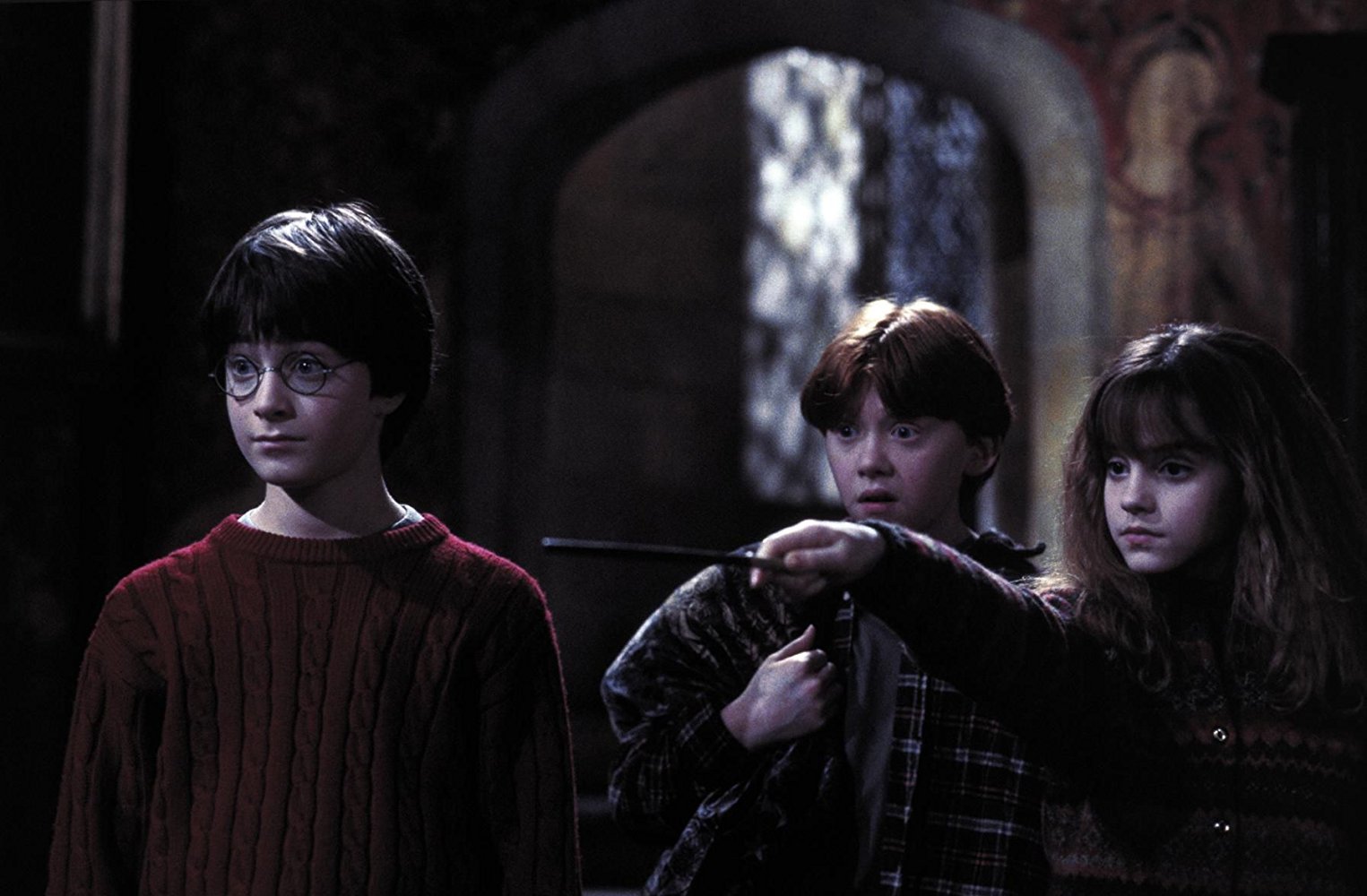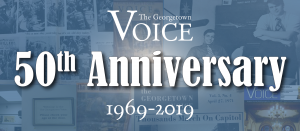About a month ago, I was sitting with my friend on my bed, giving her one of my many “Why I love Harry Potter” speeches. As the conversation went on, I felt myself getting choked up. It’s peculiar, I thought as I tried—and failed—not to tear up, the way one series can affect me in such a way, after all these years.
This month marks the 20th anniversary of the US publication of Harry Potter and the Sorcerer’s Stone, the first of the seven books in the series. It seemed incredibly odd, but also really powerful, to realize that the Harry Potter series and I are the same age. This series has played a significant part in shaping who I am today, the ways in which I behave, and the morals that I strive to live by.
I first was introduced to Harry Potter at an elementary school age. My older cousin had the books, and she was a big fan. I ignored the series then. Sometimes I caught scenes of kids flying on broomsticks when ABC Family (now called Freeform) was having one of their many Harry Potter movie marathons. I thought it looked stupid, and just changed the channel.
To make a long story short, the summer before eighth grade my uncle bought me the entire series and I finally decided to read it. I read it over and over. I practically devoured the books. I saw the final movie in theaters (still the only movie I’ve been fortunate enough to see in theaters) and cried my eyes out all night. It was a transformative summer.
That may seem like an exaggeration, but it truly isn’t. Around the time that I began reading Harry Potter, my family had just moved in with my aunt. We were struggling financially. My older brother had succumbed to the pressures of growing up in a poor black neighborhood, and, from overheard arguments, I could piece together that he was involved in some dangerous things. I couldn’t understand why, and it scared me to think he could get hurt. I could feel the stress of it all weighing on my mother. I attempted to ignore it all, despite the constant nightmares, the regular panic attacks, and the overwhelming thoughts. I pushed all the stress and fear away because I too wanted to be strong for everyone. And then Harry Potter came along.
When you’re 12 years old and suffering from anxiety—which, at the time, you don’t even understand is anxiety—a world like the wizarding world J.K. Rowling imagines on the page is incredibly appealing. I felt like Harry did—it was like escaping my difficult reality and entering a world of magic, of endless possibilities.
And so I read. I read and I absorbed every piece of information I could get from that world. I discovered in ninth grade that I was a Gryffindor (I took the Pottermore quiz again the summer before college. This time, I got Ravenclaw, which I think fits who I am better, whilst Gryffindor makes more sense for the person I am always striving to be). I identified strongly with Hermione Granger and her know-it-all urge to prove herself, something I’ve written about extensively in a prior article. I took to heart the themes of love, friendship, and bravery, and began to apply them to my life. I wanted to be more courageous, more kind, more understanding. It was easy to apply the standards of the wizarding world to the one I lived in because they weren’t that different. One had magic, sure. But there was injustice in both, cruelty in each. I felt like I was able to come to terms with my circumstances better when I thought about them through the lens of Harry Potter.
This past summer, I reread the series for the first time since junior year of high school. I felt compelled to return to the wizarding world. Spring semester of my sophomore year here at Georgetown was, to put it simply, awful. My anxiety had returned. It was often difficult to get out of bed, and, after a few sessions of counseling, it was determined that I was suffering from depression.
I spent this summer in counseling once a week. At the same time, I reread Harry Potter. With more life experience under my belt, I could more fully understand the nuances of the series for the first time. I found myself closely identifying with Harry more than ever before (I have now determined that he is, without a doubt, my favorite character in Harry Potter). I no longer consider Snape a hero, but rather a deeply flawed man who did one good thing because he was capable of love, even despite his horrible personality. I see the wizarding world much less in good or evil binaries, but instead in gray areas, just like ours. This time, Harry Potter wasn’t an escape, per se, but a welcomed return. It was like going home again, after a long time away.
The Harry Potter series is the same age as I am, which is part of the reason why I wanted to write this. There is not a single series that has left a similar impact on me as this one has. And it’s quite clear that I am only one of millions who have been affected in such a way by Rowling’s words and her larger-than-life imagination. This is a series that deserves every accolade, every level of praise that it receives. It touched multiple generations of readers and viewers, and it is superb writing in and of itself. It is absolutely phenomenal.
******
In the penultimate chapter of the final book, Harry Potter and the Deathly Hallows, Harry had just been hit by a killing curse for the second time and, in a state between life or death, is greeted by Dumbledore. After a lengthy conversation, he asks Dumbledore a question: “Tell me one last thing,’ said Harry. ‘Is this real? Or has this been happening inside my head?’”
I often think about Harry’s question when considering the impact the series has had on me. It seems odd at first that a fictional world, with made-up characters, magic, dragons, castles, and potions can affect me in such a way. That is often the response I get when I talk about how much the series means to me. People wonder how I can be so affected by something that isn’t real. “It’s just a book,” they say.
But that’s the thing. The world I visualize when reading is in my head, yes. And sure, it doesn’t exist. And I can’t ride on the Hogwarts express. I can’t pick up a wand and do magic. I’m not going to be battling a dark wizard anytime soon. It doesn’t exist physically. But the impact it has on me does. It shows itself everytime I read. I wasn’t thinking about this at the time, but it’s no coincidence that I chose to reread Harry Potter this particular summer. After a semester of anxiety, of mental breakdowns, and poor emotional health, and during a summer of healing, I subconsciously, almost naturally, returned to a world that had provided such relief during a painful time in my past. And so when someone tells me that it’s weird to be so attached to a fictional series, I think about Dumbledore’s response to Harry’s question—I’d like to think J.K. Rowling was talking to us, the dedicated readers whose lives had forever been changed by her words, when she wrote it.
“Of course it is happening inside your head, Harry. But why on earth should that mean that it is not real?”





